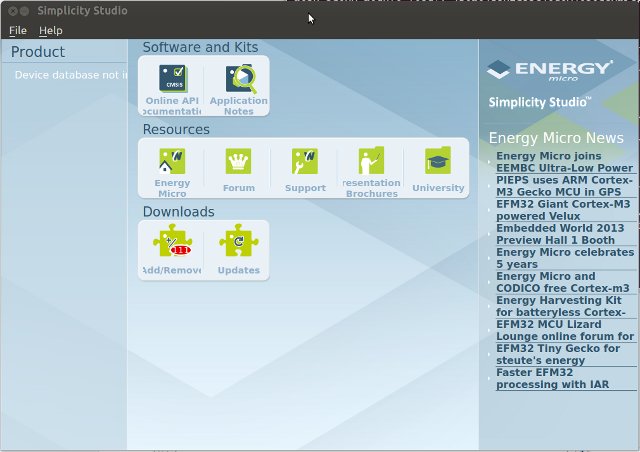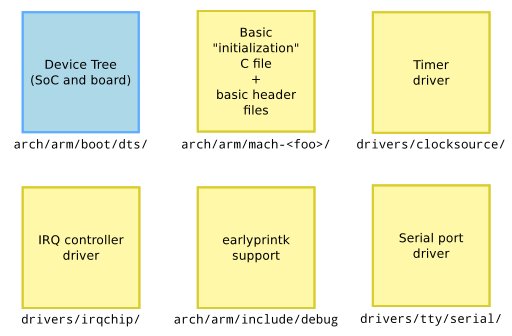Samsung launched Exynos 5 Octa at CES 2013. This processor comes with 8 cores: 4 Cortex A15 cores and 4 Cortex A7 cores, and it’s the first processor that’s been announced to work in big.LITTLE configuration, where the big cores (A15) handle demanding tasks, and the LITTLE cores (A7) handle simpler tasks such as audio playback or background tasks. This is all done to optimize power consumption. There are 2 big.LITTLE software implementations: In-kernel switcher (IKS) and heterogeneous multi-processing (HMP). The first one is easier to implements but can only use 4 cores (in Exynos 5 Octa) at a time, and the second is more complex, but can handle all 8 cores, and assign individual tasks to a particular core. For more technical details about big.LITTLE implementations, you can read my previous post. ARM and Samsung recently uploaded a video providing an overview of big.LITTLE (but instead of IKS and […]
Open ARM GPU Drivers FOSDEM 2013 Video and Call to ARM Management
As I previously wrote, FOSDEM organizers are slowly uploading FOSDEM 2013 videos. One of the most interesting talk “Open ARM GPU Drivers” is now available. I’ve also uploaded it to YouTube (embedded below) to give it more exposure. Luc Verhaegen has also written a recent blog post entitled “Hey ARM!” where he announces the release of the modified source for Quake 3 Arena demo, and asks ARM to join them in making an open source driver. Open ARM GPU Drivers @ FOSDEM2013 This session covers the following key points: Problem – Binary drivers are mainly designed to run in Android, and it’s very difficult to have proper GPU drivers for Linux, and companies are not interested to release open source drivers or even just documentation, as they are not convinced it will benefit them in any way. Legal – This is actually the main issue, as open sourcing existing driver […]
A Selection of FOSDEM 2013 Events
FOSDEM is a 2-day (or 3 if you include Friday beer event) event where over 5,000 members of open source communities meet, share ideas and collaborate. It’s free to attend, and there’s no registration, so you just show up to attend. FOSDEM 2013 takes place on Feb 2-3 (yep, this week-end) in Brussels There are 7 main tracks where sessions are organized: Operating systems Open source challenges Security Janson Beyond operating systems Web development Miscellaneous Robotics There are also keynotes and devroom for a total of 488 sessions. Developers rooms that may particularly be of interest to readers of this blog are: Cross Desktop devroom – e.g. Wayland, gstreamer, razor-qt, Qt Project, Plasma Active, etc… Cross Distro devroom – e.g. Linux on Android, suse on ARM, ARMv8, systemd, etc… Embedded and mobile devroom – e.g. Baserock Embedded Linux, Guacamayo (Yocto), Nemo Mobile/ Mer project, arduino… All in all that’s a […]
ARM MCU Development in Linux with Energy Micro’s Simplicity Studio, Eclipse, and CodeSourcery Toolchain
Quite a few months ago, I received an Energy Micro EFM32 Tiny Gecko Starter Kit, but I haven’t done much with it. But recently I saw a tweet from EnergyMicro about Simplicity Studio supports for Ubuntu, and I know it can be problematic to find proper tools for ARM MCU development in Linux, so I decided to give it a try. The first part is about Simplicity Studio, and energyAwareTools which are specific to Energy Micro, but the second part deals with setting up Eclipse and CodeSourcery ARM toolchain for MCU development which should be reusable for other MCUs from vendors such as Texas Instruments, NXP and STMicro. I’ve used a PC running Ubuntu 12.04 64-bit with the instructions below. Installing Simplicity Studio and energyAwareTools in Ubuntu Simplicity Studio is part of the 4 steps of the getting started guide with EFM32 MCUs. It has been available for Linux for […]
Embedded Linux Conference 2013 Schedule
The Embedded Linux Conference (ELC 2013) will take place on February 20 – 22, 2013 at Park 55 Hotel in San Francisco, California. ELC consists of 3 days of presentations, tutorials and sessions. There will be over 50 sessions during those 3 days. I’ll highlight a few sessions that I find particularly interesting, and that did not get presented at ELCE 2012 (AFAICR). February 20 11:00 – Anatomy of the arm-soc git tree by Olof Johansson, Google We are now two years into the new maintainer model for ARM platforms, and we have settled down into a workflow that maintainers have adjusted well to. Still, when new platforms arrive, or when maintainer ship changes hands, there’s sometimes a bit of ramp-up in getting used to how we organize our git tree and how we prefer to see code submitted to fit that model. This presentation will give an overview of […]
GPUs Comparison: ARM Mali vs Vivante GCxxx vs PowerVR SGX vs Nvidia Geforce ULP
I’m always very confused when it comes to comparing GPUs in different SoCs, and I could not really find comparisons on the web, so I’m going to give it a try even though, as you’re going to find out, it’s actually quite a challenge. There are mainly 4 companies that provide GPUs: ARM, Imagination Technologies, Vivante and Nvidia. [Update: Two comments mentioned Qualcomm Adreno and Broadcom VideoCore are missing from the list. Maybe I’ll do an update later]. Each company offers many different versions and flavors of their GPU as summarized below. ARM Imagination Technologies Vivante Nvidia Mali-400 Series: Mali-400 MP Mali-450 MP Mali-600 Series Mali-T604 Mali-T624 Mali-T628 Mali-T658 Mali-T678 PowerVR SGX Series 5: SGX520 SGX530 SGX531 SGX535 SGX540 SGX545 PowerVR SGX Series 5XT: SGX543MP1-16 SGX544MP1-16 SGX554MP1-16 PowerVR SGX Series 6: G6200 G6230 G6400 G6430 G6600 2D graphics: GC300 GC350 3D graphics: GC400 GC800 GC1000 GC2000 GC4000 ULP GeForce (Tegra […]
Your New ARM SoC Linux Support Check-List – ELCE 2012
Thomas Petazzoni, embedded Linux engineer and trainer at Free Electrons, describes the steps he followed to add a new Marvell SoC to the mainline kernel at ELCE 2012. Abstract: Since Linus Torvalds raised warnings about the state of the ARM architecture support in the Linux kernel, a huge amount of effort and reorganization has happened in the way Linux supports ARM SoCs. From the addition of the device tree to the pinctrl subsystem, from the new clock framework to the new rules in code organization and design, the changes have been significant over the last one and half year in the Arm Linux kernel world. Based on the speaker’s experience on getting the support for the new Marvell Armada 370 and Armada XP SoC support in the mainline Linux kernel, we will give an overview of those changes and summarize the new rules for ARM Linux support. We aim at […]
Device Tree and its Stumbling Blocks – ELCE 2012
Wolfram Sang, kernel developer for embedded systems at Pengutronix, talks about Device trees and conflicts and pitfalls he experienced as a kernel developer and I2C subsystem maintainer. This is one of several talks about Device trees at ELCE 2012. Abstract: Since ARM started to use device trees, their impact on various subsystems in the kernel has been increasing significantly. Because they became the de-facto standard, everybody wants them soon. Because they need a ton of conversions and adaptions, a lot of questions are still unresolved. This carries potential for conflicts.Wolfram has dealt with device trees already on PowerPC and still does on ARM. Additionally, he co-maintains the I2C subsystem which is affected by device tree conversions, too. Knowing both sides, as developer and as maintainer, he will talk about stumbling blocks experienced so far, e.g. typical pitfalls when inventing bindings or the high pace. A number of examples will be […]









